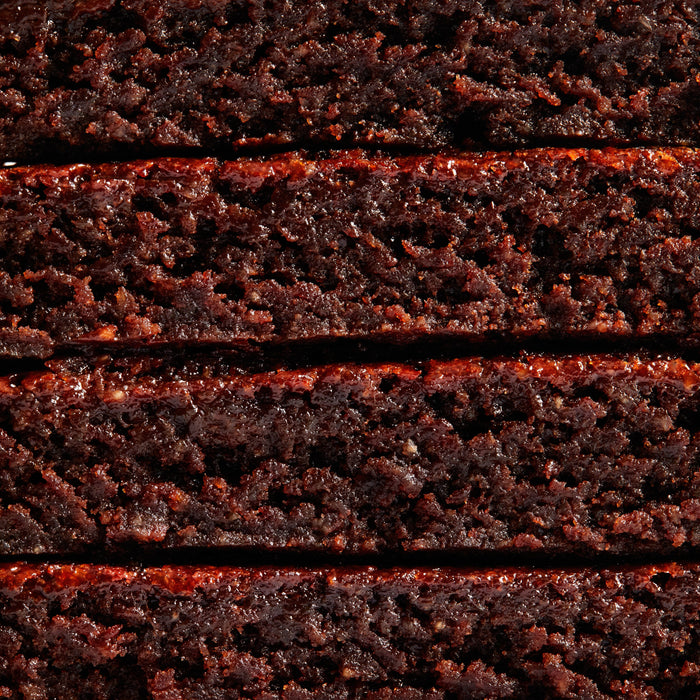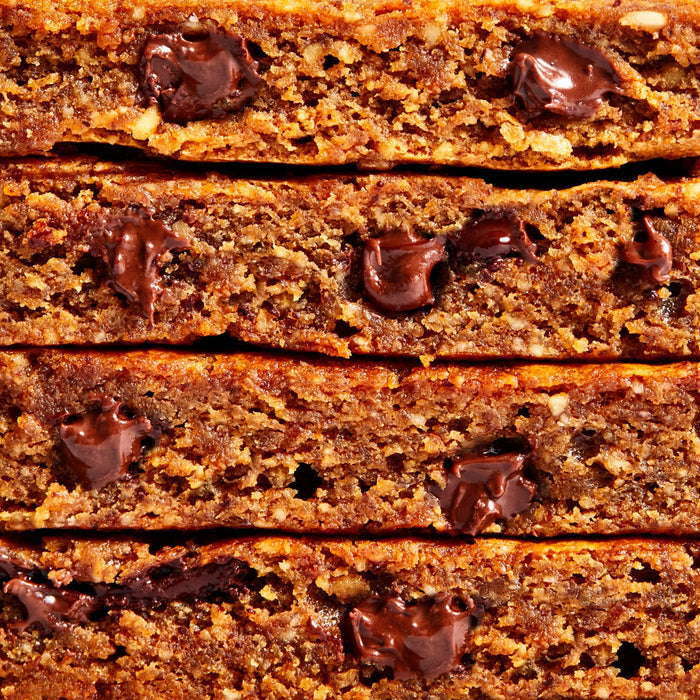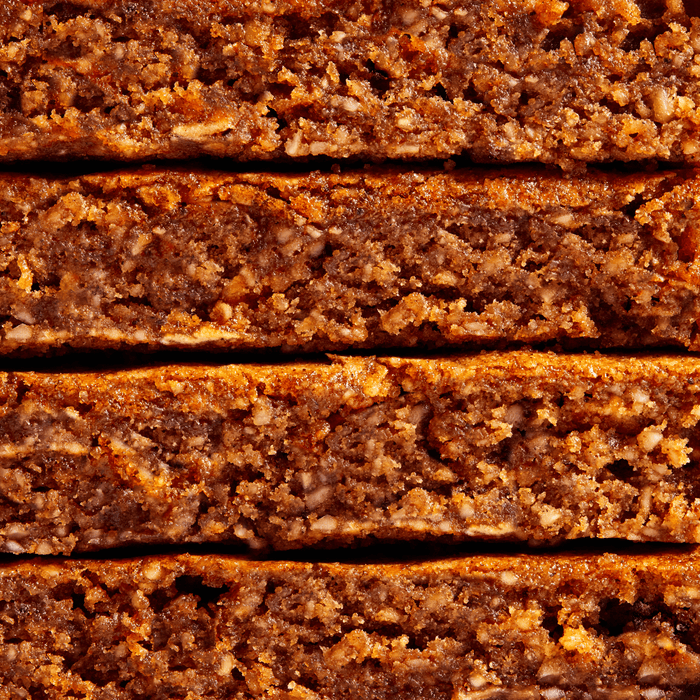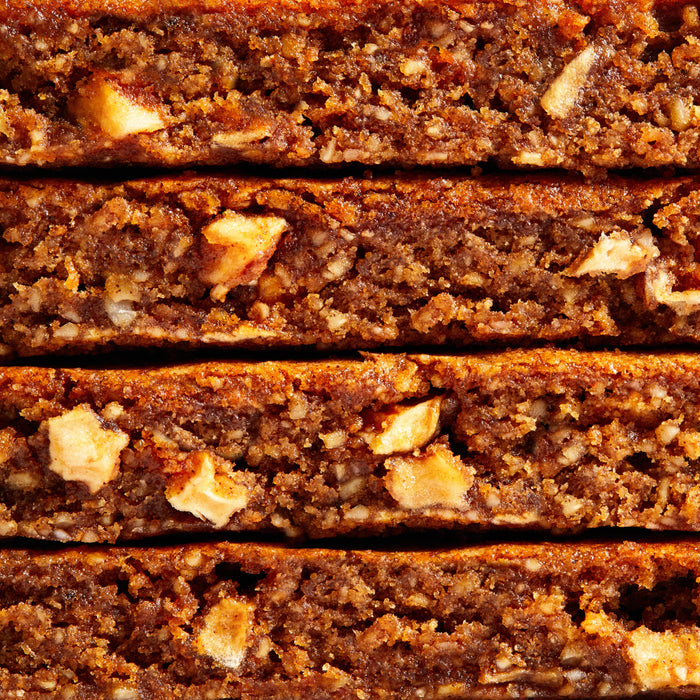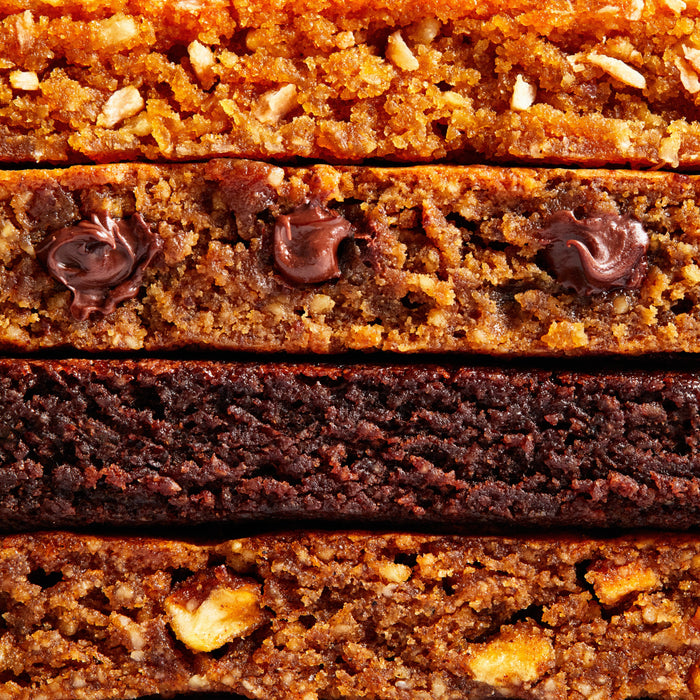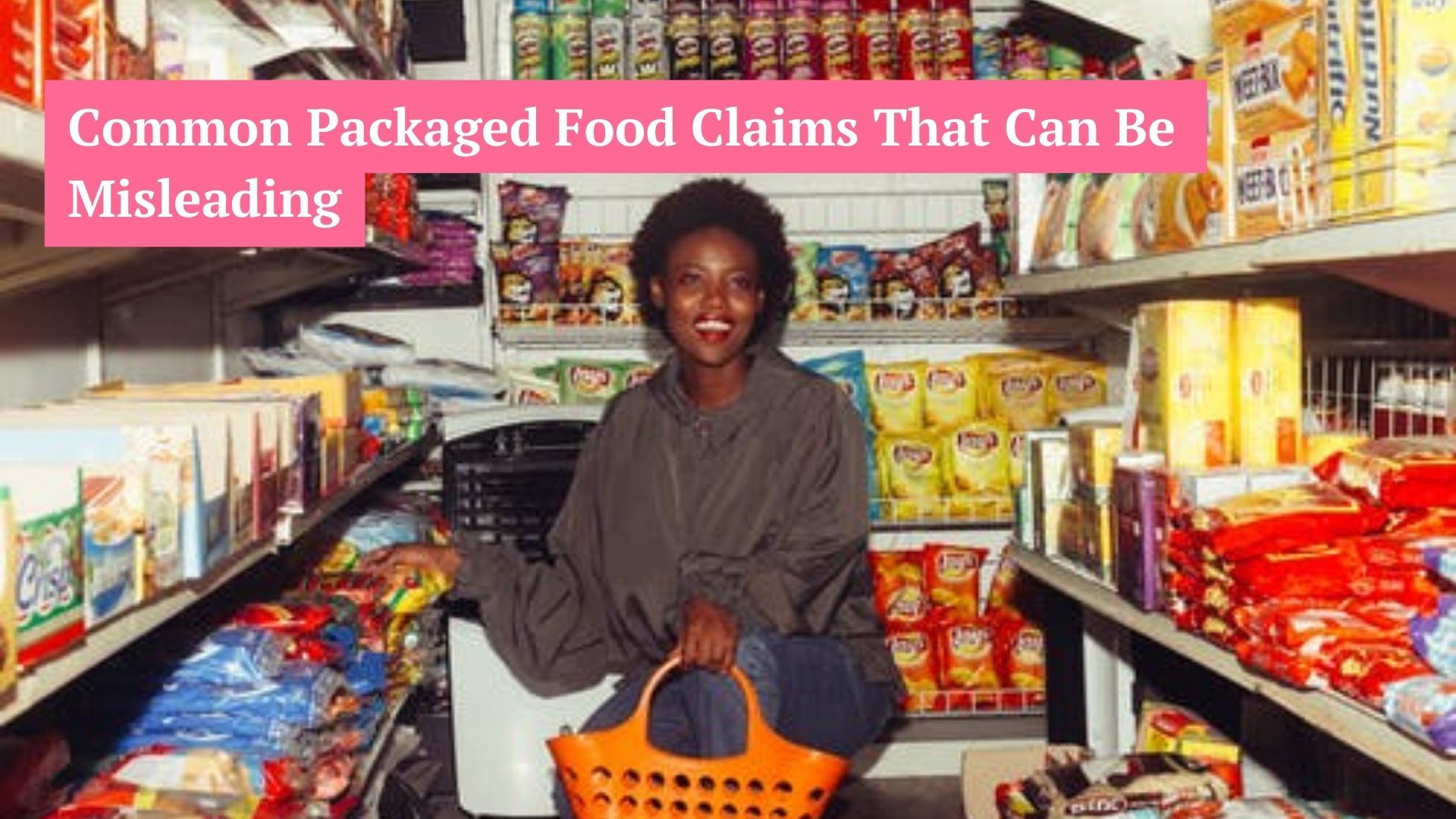

· By Mohisha Patel
4 Most Common Misleading Packaged Food Claims
With a big market filled with processed foods, finding healthy dessert and meal options are always a struggle. So when you come across a new packaged snack or food brand that boasts about their endless benefits you can’t help but question the claims. We understand the frustration all too well, after all it’s what prompted the creation of our own gut-healthy brownies.
Keep reading to learn how the most common food claims seen in the packaged snack and meal industry can be misleading.
Disclaimer: Not all brands that use the following verbiage are misleading. Always research new foods to ensure brands are staying true to their claims.
What Packaged Food Claims Really Mean
1. “Reduced”
“Reduced” is one of the most popular claims seen on almost every type of food including desserts, savory snacks, and even drinks. For a food product to be labeled as reduced, the product needs to be 25% lower in either sugar, fat or sodium than the standard product.

2. “Real fruit” or “Real Vegetables”
We’ve all seen those kid friendly marketed products that state they use “real fruit” or “real vegetables”. However, this doesn't necessarily mean that the product is nutritious. The fruit or vegetables in these products often comes from juices or pastes rather than the actual whole produce. Additionally, these “real fruits” and “real vegetables” are packed with a lot of sugar or sodium. Instead, look at the ingredients to see which part of the fruit or vegetable is being used and how much of it is actually in the packaged product.

3. “Natural”
You’re probably wondering what does “natural” even mean? In fact, there is no rule around how and when a food brand can use this verbiage! As a result, what’s natural for one brand may be a different kind of nature for another. Food brands that use this word without elaborating are hoping to give off the impression that the product is healthy when in reality the product may have a lot of fats, sugar, and sodium. If you see “natural” on a product make sure to find what exactly makes it natural.

4. “Baked”
It is really tempting to assume baked snacks are healthier than fried snacks. However, just because a product is baked doesn't mean there wasn't any usage of oil and salt. An easy way to see if the baked option is truly better is to compare it to its fried counterpart. Look carefully at saturated fat contents and see if the difference is really that big. It is also crucial to notice if there is a considerable increase in other areas such as sodium or sugar to make up for the lack of frying.

Misleading Food Claims Conclusion
When shopping for healthy packaged food options, it is important to not blatantly believe the packaging. Packaging is there for marketing purposes and can easily be used to mislead the customer. It is good practice to flip the product and see if the nutrition label and ingredients back up the claims.
Not sure where to start? Check out our previous blog post to discover some of our favorite healthy packaged late night snacks!


